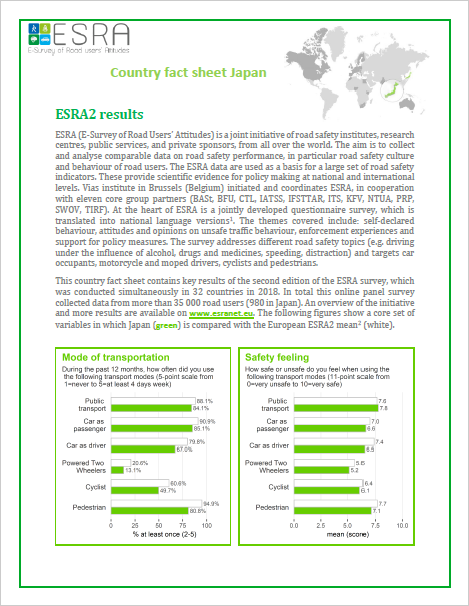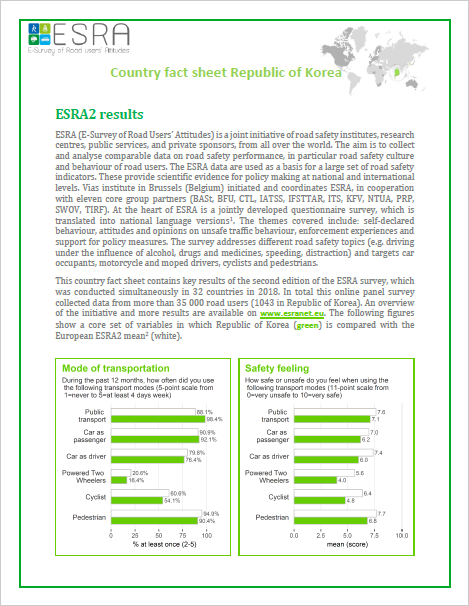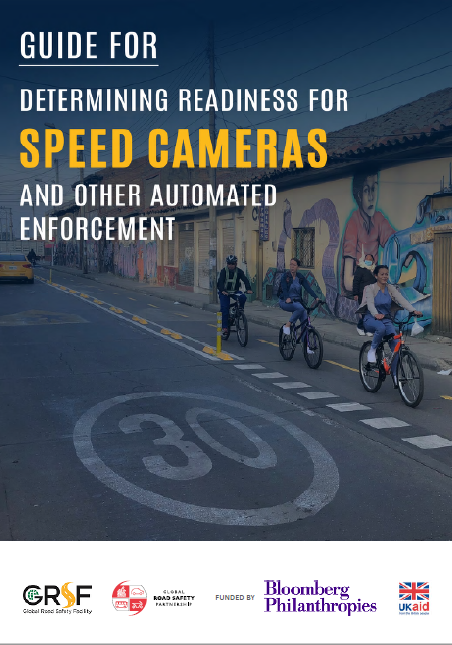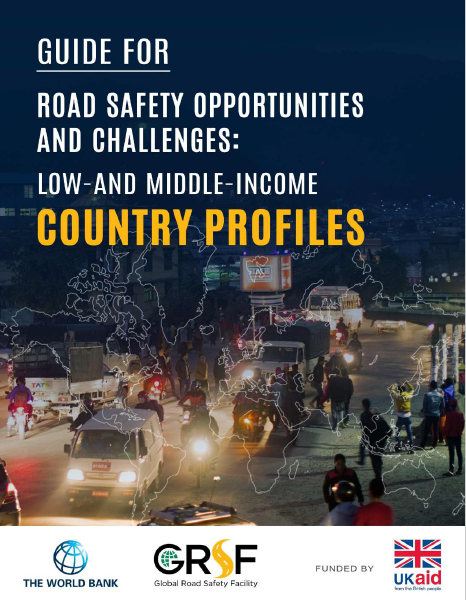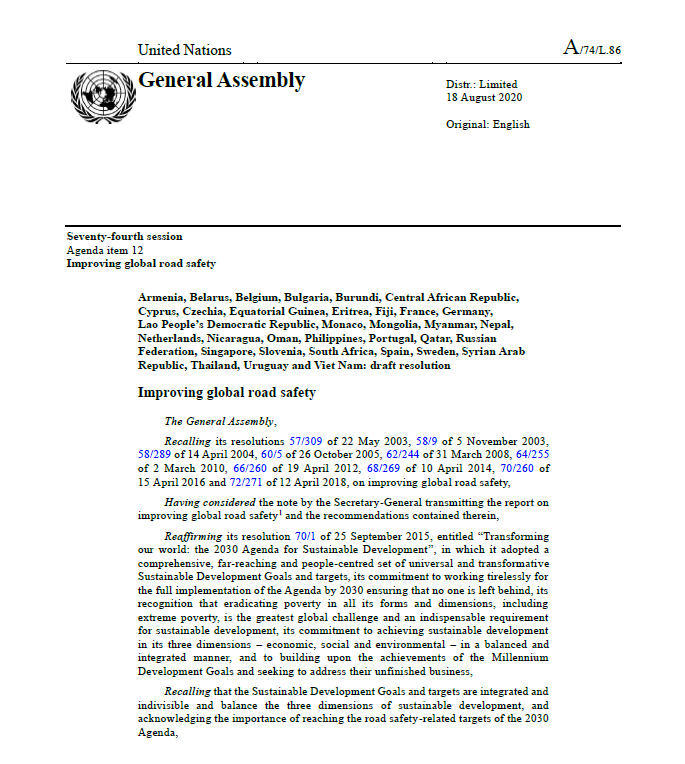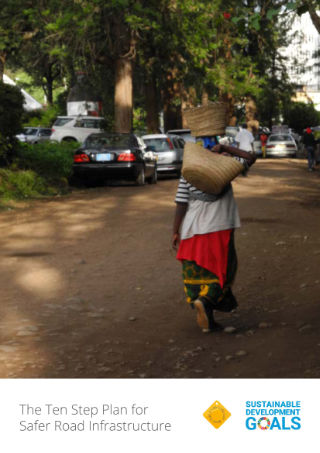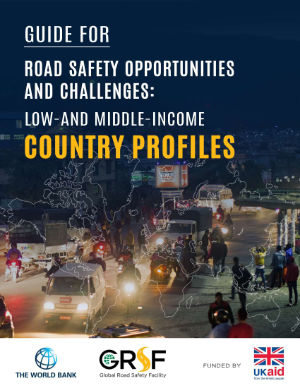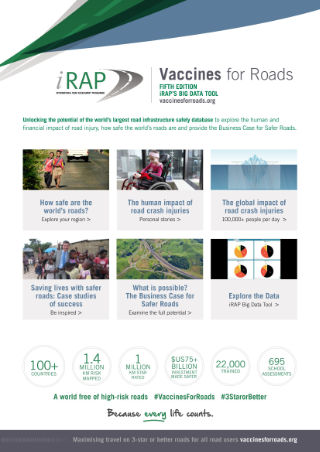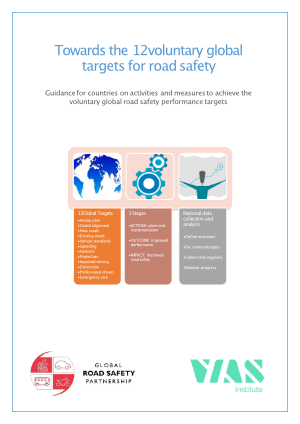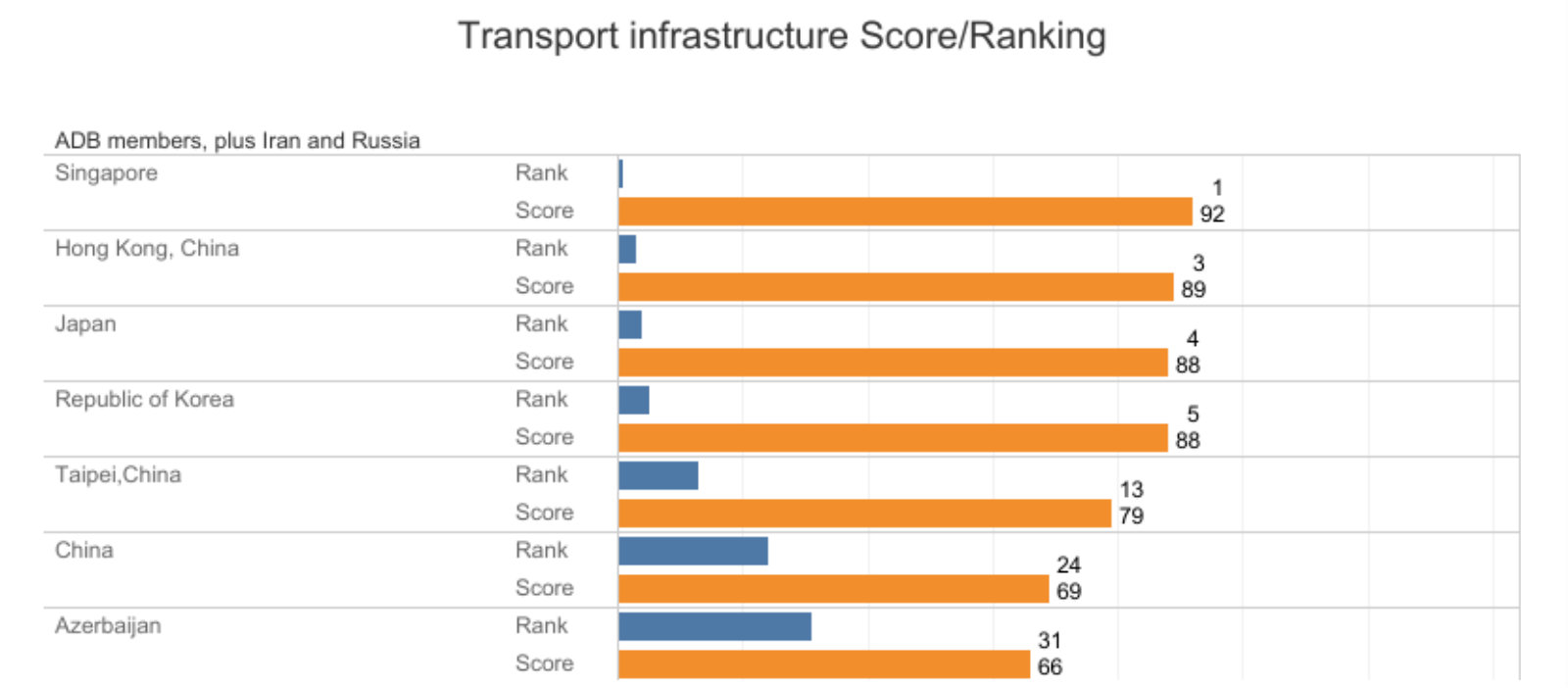
Data and Knowledge
ESRA (E-Survey of Road Users’ Attitudes) is a joint initiative of road safety institutes, research centres, government departments, and private sponsors, from all over the world. The aim is to collect and analyse comparable data on road safety performance, in particular road safety culture and behaviours for policy measures.
ESRA (E-Survey of Road Users’ Attitudes) is a joint initiative of road safety institutes, research centres, government departments, and private sponsors, from all over the world. The aim is to collect and analyse comparable data on road safety performance, in particular road safety culture and behaviours for policy measures.
The Guide for Determining Readiness for Speed Cameras and Other Automated Enforcement is particularly designed to address the questions of many countries who are considering the introduction of a speed camera program, or similar automated system. These technologies are, on the whole, effective, but require extensive ground work to ensure their benefits - and many countries have not yet engaged in this ground work but are considering these systems.
The Guide for Road Safety Opportunities and Challenges: Low and Middle-Income Country Profiles, is the first data report to cover all 125 LMICs with comprehensive road safety country profiles. The profiles present information on each pillar of road safety—management, roads, speed, vehicles, road users, and post-crash care—, to help countries and development practitioners identify challenges and opportunities, and monitor progress.
Pagination
Partner Websites
The Big Data Tool summarises star rating and investment plan data – over 400 million data points – based on 358,000km of roads across 54 countries covering over 700 billion vehicle kilometres of travel every year.
The Road Safety Toolkit provides free information on the causes and prevention of road crashes that cause death and injury.
These documents provide information and knowledge for partners so that they can lead, undertake and implement iRAP assessments.
Maximising travel on roads that are 3-star or better will save lives and reduce injuries. Applying the global standard and ensuring all new roads are built to at least a 3-star standard for all road users and existing roads are upgraded to achieve >75% of travel on 3-star or better roads is the vaccine we need.
These select publications have been developed jointly by multiple partner agencies of the UN Road Safety Collaboration or in some cases by individual partner agencies.
